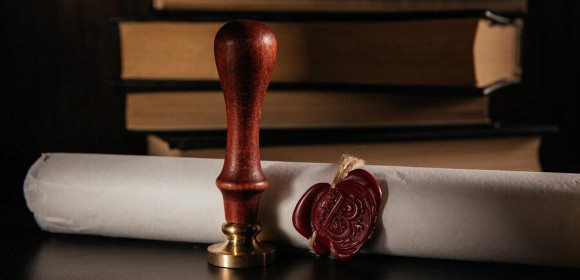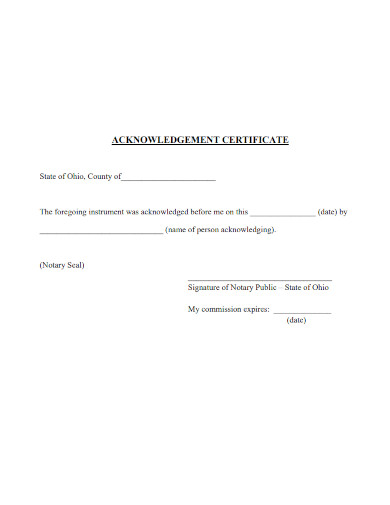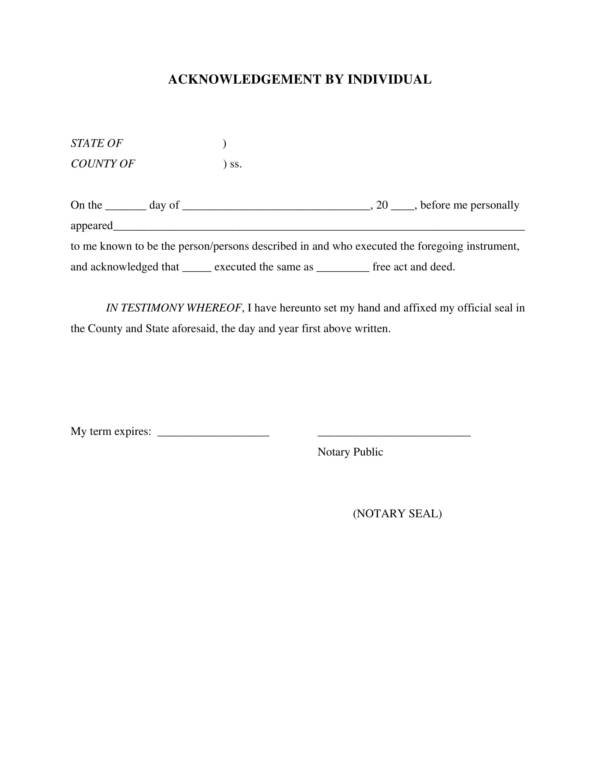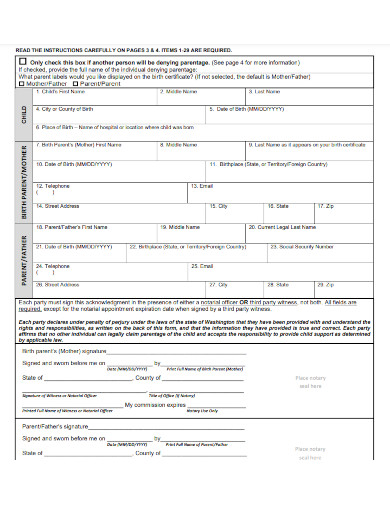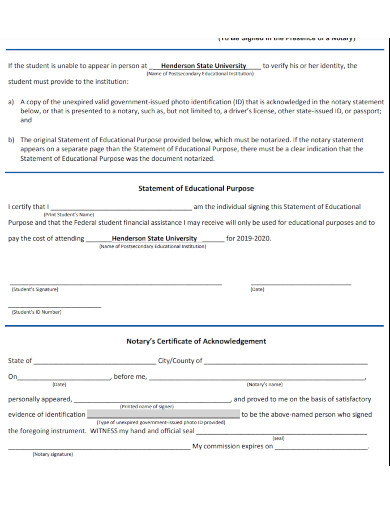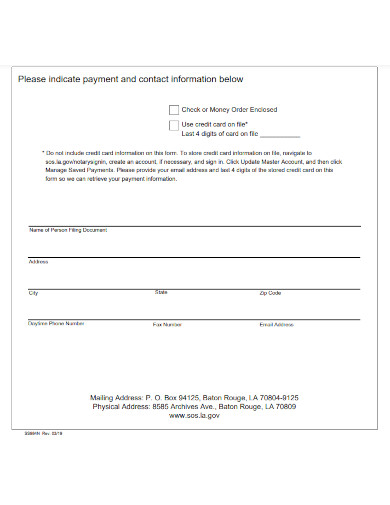There is a reason why legal documents should be authenticated and verified before submitting them to any institution or agency: for the protection of rights and validation of identity. This is why acknowledgments in notarial documents are very important since it makes any signed papers, such as deeds, wills, affidavits, and power of attorneys, valid and admissible in any court of law. It is also a way to identify the veracity of the signature of any affiant or complainant, as some of them may be only forced to do so. In this article, we will talk about notary acknowledgments and how you can make them for your documents.
4+ Notary Acknowledgement
1. Notary Acknowledgement
2. Notary Individual Acknowledgement
3. Notary Parentage Acknowledgement
4. Educational Notary Acknowledgement
5. Notary Acknowledgement Official Signature Form
What Is a Notary Acknowledgment?
Notary acknowledgments are found on the bottom part or last page of a notarized document whose purpose is to verify the genuineness of any legal documents as well as the signer. An acknowledgment verifies that the signer is willing to put their signature on the document and that they are not under duress. Without an acknowledgment and the signature of a licensed notary public, the document will remain powerless and cannot be used in court as part of any evidence.
How to Make a Notary Acknowledgment
Is it your first time hearing about notary acknowledgments? If it is, then you can do your research first to understand what it truly encompasses. In the following paragraphs, we will tell you how you can make acknowledgments and what you need to do to make them legal.
1. Know What Type of Documents You Need To Make
Before actually making your acknowledgments, you need to know what documents you need to make first. Is it a contract agreement for business? A last will and testament for a dying person? Service contracts? An affidavit? Many documents can be your instrument to protect your rights, business, and the law, so make sure you know and understand each of them.
2. Review Your Document
Before including the acknowledgment in the document, make sure that you have read all of the terms and conditions, clauses, and checked all exhibits carefully. Remember, when you sign your acknowledgment, all of the stipulations in the document therein are final unless you want to contest them after it has been signed and that would take a lot of time discussing and preparing more documents to reason out why you need to change something.
3. Write the Acknowledgment
After that, it is time for you to write your acknowledgment. The statement when writing your acknowledgment should be:
“On this (write the date), (name of notarization), before me (name of notary public), personally appeared (name of the signer) and proved to me based on satisfactory evidence of identification (write ID card description and number here) to be the above person who signed the foregoing instrument…”
4. Go To A Notary Public
After going through your document and putting in your signature, it is time that you go to the notary public. If you do not know any notary public, it would be best to bring your document to a respected law firm so that you can be sure that the seal and signature are also authentic. You can also visit your local city hall or the consulate (especially if your document is bound to be used in another country).
5. Keep a Copy of Your Document
In this case, if you may have to submit your document to someone else for whatever purpose you might have done the paper for in the first place, do not forget to keep a copy for yourself. In case the one you have given the document to may lose it, you still have another copy that you can reproduce. Make sure to keep it in a place that is private to you.
FAQs
Why should I have my document acknowledged?
You should have your document acknowledged for it to be legally binding and enforceable, and then you can use it to settle disputes or reinforce your rights when it comes to terminated contracts.
What are some of the documents that need to be notarized?
Some of the documents that should be notarized are the following: jurats or affidavits, wills and testaments, special or general power of attorney, deeds (sale, donation, ownership), motions, contract agreements (business loans, service, business partnerships), and many others.
What is an affidavit?
An affidavit, or jurat, is a legal statement in writing that states that the person is under, and it can be used in court once it has the authentic seal and signature of a notary public.
Making your documents legal and enforceable will help you fight for your rights and settle any disputes without fear in the future. That is why you need to know the importance of acknowledgments on documents and why you should have one every time you entered into or sign a paper. Download our editable and printable notary acknowledgments today by clicking our available samples or browsing our gallery.
Related Posts
Raffle Sheet
News Report
Written Warning
Teacher Lesson Plan
Visitors Log
Reflective Writing
Briefing Note
Timetable
Training Evaluation Forms
Acceptance Speech
Scientific Reports Samples & Templates
Attendance List Samples & Templates
Presentation Speech Samples & Templates
Ukulele Chord Chart Samples & Templates
Retirement Speech Samples & Templates
